Make Real first met Lloyds Banking Group L&D team at the side-event to Learning Technologies, the [then named] Lumesse Learning Lounge in 2017, which we had been invited to participate by the elearning company organising the event (now owned by Saba). At the time, much of our work was focused on hard skills, with our early prototypes for climbing telephone masts and electrician apprenticeship training, so there was much discussion how Virtual Reality could be applied to the office-based, soft, or interpersonal skills that LBG typically ran training courses around.
Never ones to shy away from a challenge, the Make Real team worked with the LBG training team to take some of their existing content, a short training scenario based upon “difficult conversations”, to design a VR proof-of-concept that would validate and test whether the same or new learning outcomes could be achieved.
This 5 minute experience had to factor in a number of design and learning challenges and outcomes to determine suitability including:
Upon completion of the proof-of-concept, LBG went away and carried out a series of learner user tests and gathered their qualitative and quantitative feedback accordingly.
Early impressions showed that learners were willing and excited to adopt the VR technology and new tool for training, when used as part of a blended package, which included traditional methods. Learners could appreciate the benefits of using the technology to remove some of the barriers to achieving learning outcomes with traditional methods, which included embarrassment of doing roleplay in front of colleagues, effectiveness of using human actors in terms of consistency of training across a series of sessions throughout a day, and similarly the reduced costs of scaling up training without the need to employ additional actors on a 1-2-1 basis as required.
Overall the learner feedback scores increased enough to warrant further scale and depth of learning experiences to be agreed and started a new phenomenon previously unseen for self-study content – a waiting list of people signing up wanting to try it out.
Further immersive learning experiences developed increased in complexity and length of training content included, seeing the script sizes increase from 15 lines to 300 to 1,500. With this added complexity, Make Real had to adapt and create internal toolsets to manage the script-to-screen process and pipeline so that writers could maintain freedom to increase nuance to the narrative without crippling the developers with overtly complex integration logic in code. As a result, Dialogic was born to streamline and improve these processes and pipelines to keep costs and time down whilst raising quality of the learning content.
With a quickly growing catalogue of immersive learning content, LBG became one of our first clients to fully embrace the emerging Oculus for Business enterprise hardware offerings for Oculus Rift, Oculus Go and later Oculus Quest.
However the Oculus Rift full VR setup was ruled out of the longer-term strategy due to the reliance upon additional VR PC hardware, being tethered via cable and the additional costs and complications around IT and procurement that this entailed, enabling LBG to focus purposefully on standalone VR options, firstly with the Oculus Go and then the Oculus Quest.
In order to increase range and scale of deployment across LBG training centres, the immersive learning experiences were developed with a three-tiered design approach, allowing one code base to generate a full VR experience (Oculus Quest), a mobile VR experience (Oculus Go) and a desktop 360º video version that could be launched from a web browser. However after evaluation it was decided for the purposes of impact and cost effectiveness, to concentrate on the VR deployments to make best use of the benefits of the technology as the number of units deployed increased against rising demand.
| Year | Project | Description | Technology |
|---|---|---|---|
| 2018 | Difficult Conversations | Proof-of-Concept 5-min training experience to validate VR use case | VR |
| 2019 | Personal Vitality + Resilience | Training scenario around interpersonal team and colleague well-being and communication approaches | VR |
| 2019 | Relationship Management | Increasingly complex scenarios around creating trust, rapport and balancing communication and departmental outcomes with colleagues and clients needs | VR |
| 2020 | Conflict Resolution | Training around Transactional Analysis methods and ego-states associated with intermediary colleague and team management | VR |
| 2020 | New project/s | Further immersive learning experiences | VR |
LBG have noted many of the expected benefits of using immersive technologies, in this case VR specifically, as part of their blended learning approach, including:
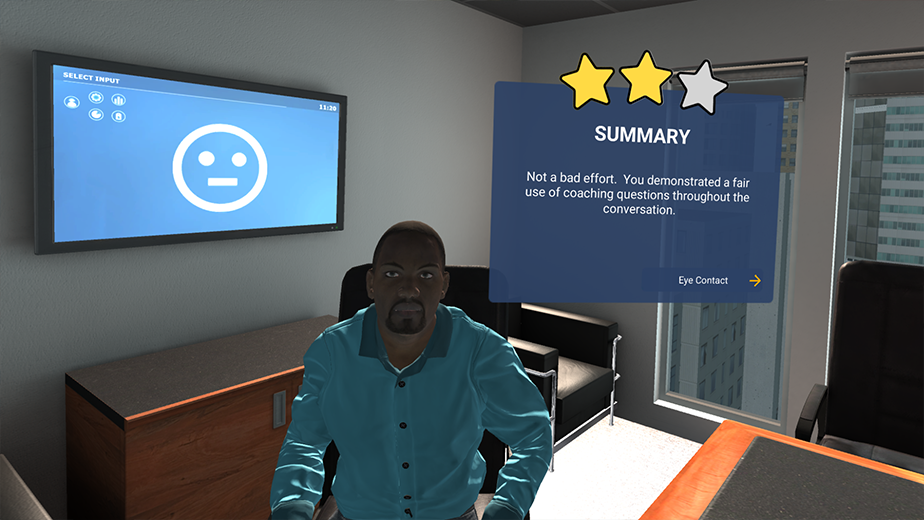
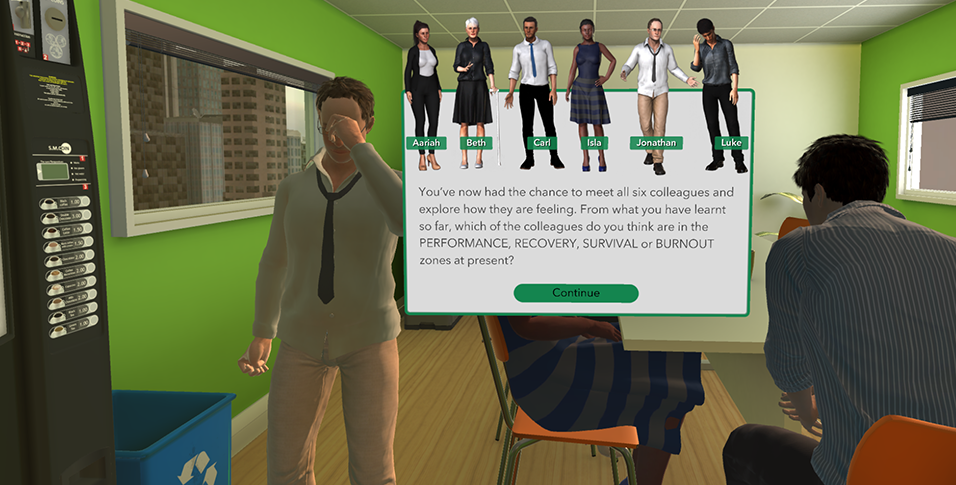
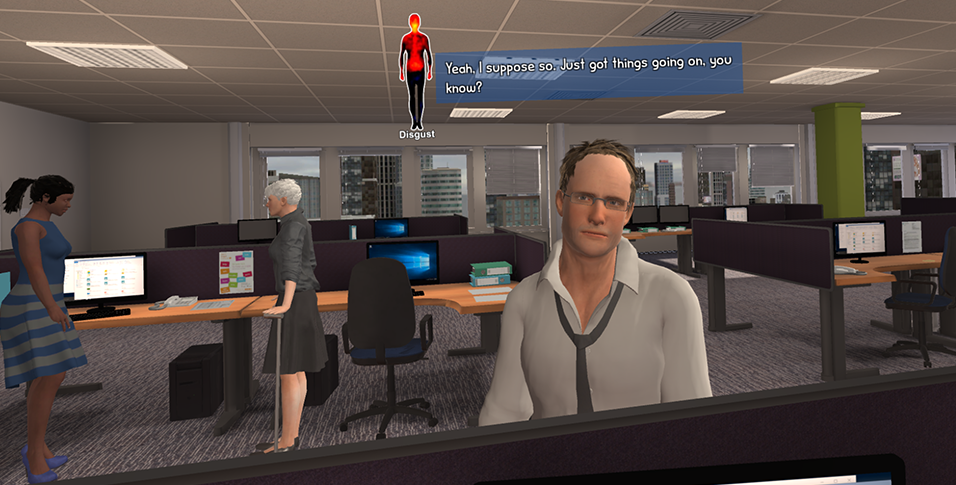
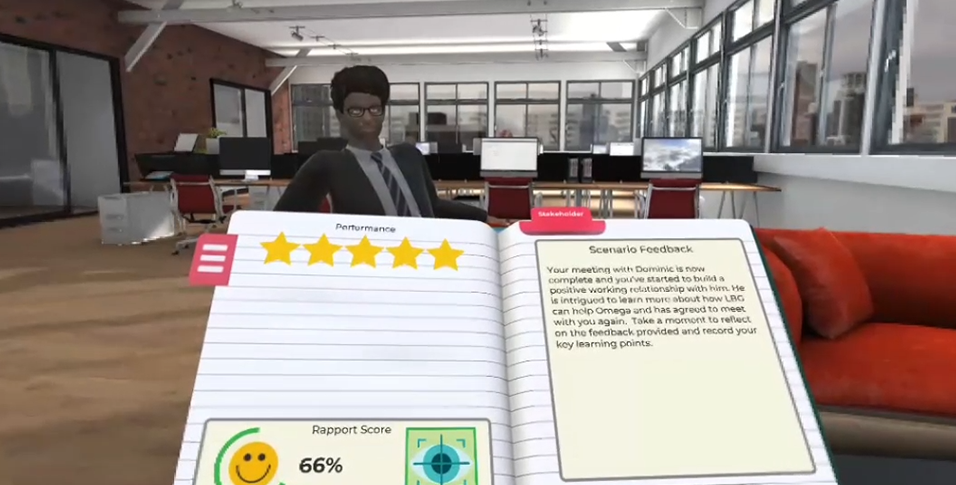
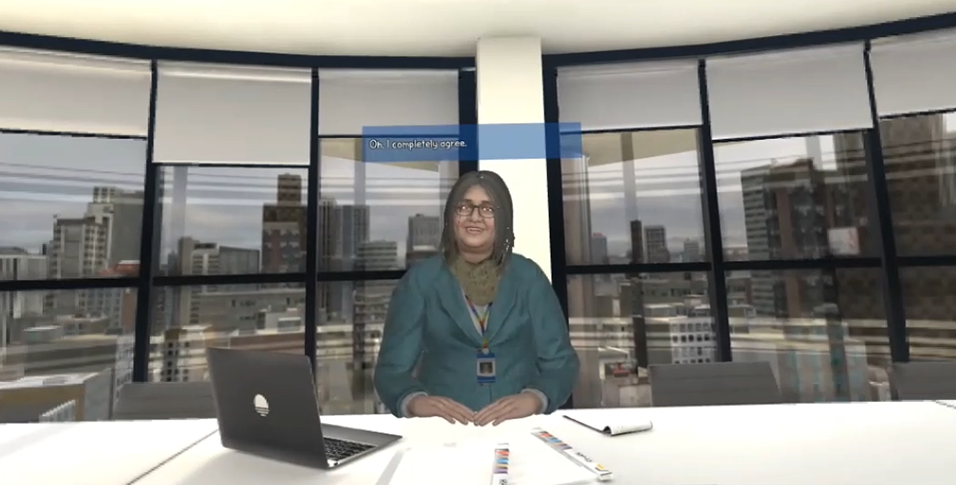
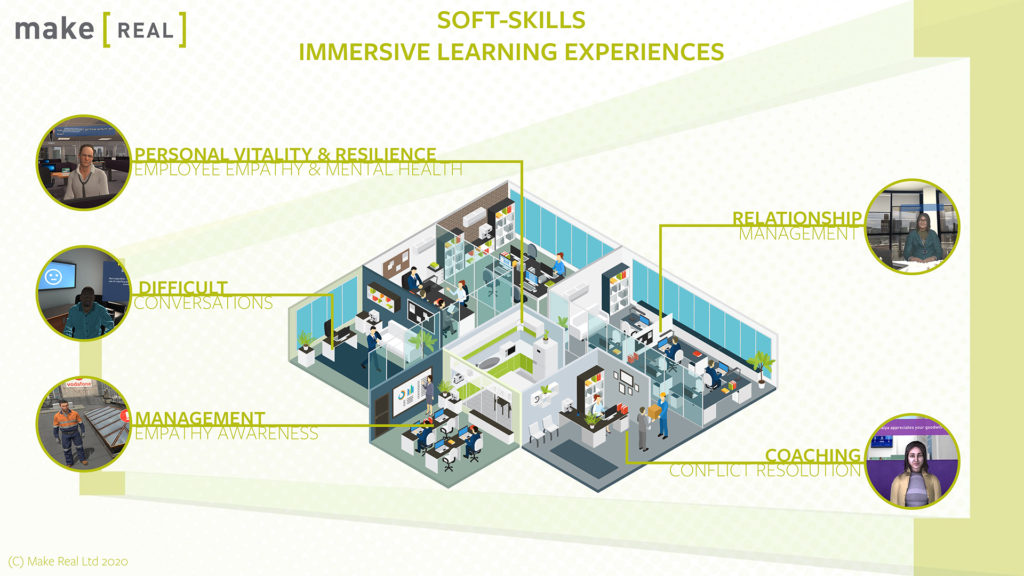
We’re always happy to talk to you about how immersive technologies can engage your employees and customers. If you have a learning objective in mind, or simply want to know more about emerging technologies like VR, AR, or AI, send us a message and we’ll get back to you as soon as we can.